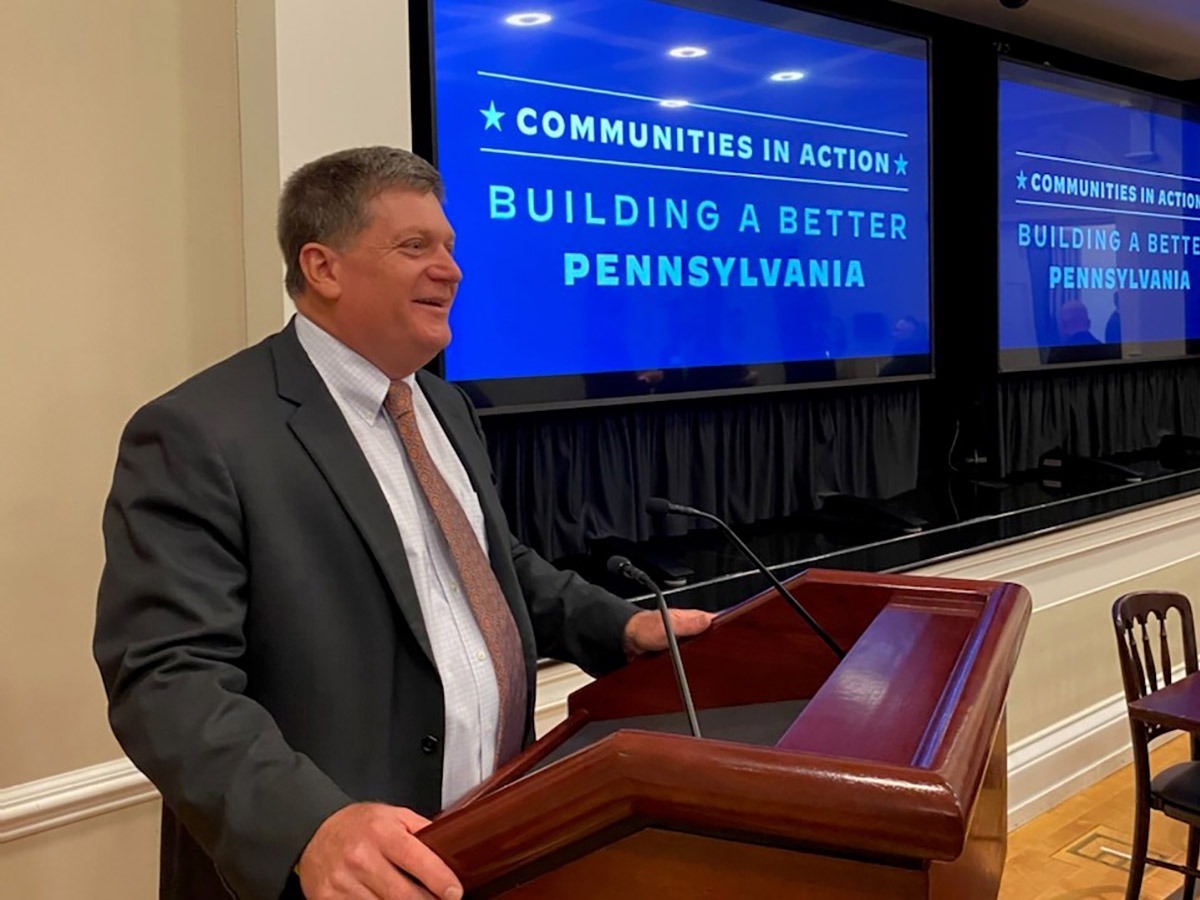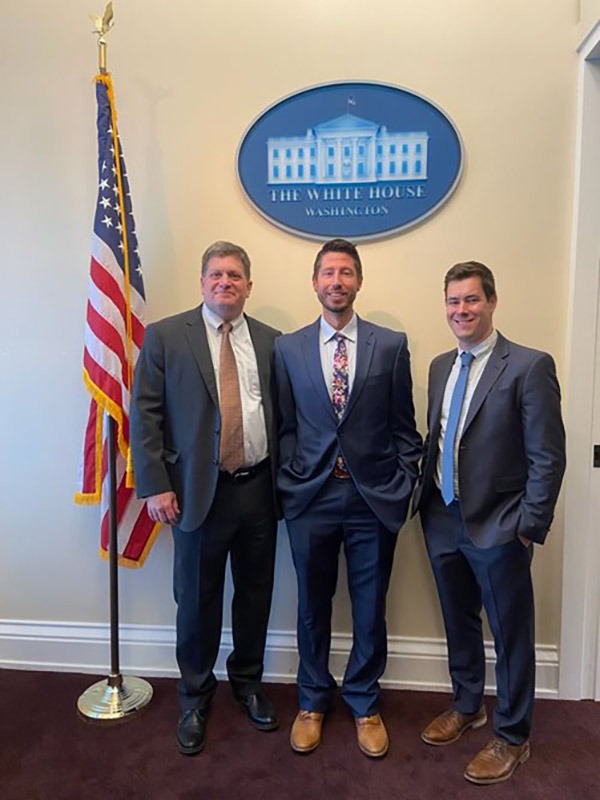David Lewis represents UWGLV at the White House for the Communities in Action: Building a Better Pennsylvania event

UWGLV serves a tri-county area about 60 miles north of Philadelphia that includes Allentown – Pennsylvania’s third-largest city – and Lehigh County, one of the fastest growing counties in the state. Over the past two years, UWGLV has worked with Lehigh County to distribute $8 million in funding to 140 nonprofits – impacting 50,000 people with food and housing services, education programs and resources for older adults.
“Lehigh County trusted us and knew we had the processes, the partnerships and the experience to deliver the funding quickly, rapidly and equitably,” said Lewis. The majority of funds supported organizations that were either led by or serve historically marginalized populations.
Communities in Action: Building a Better Pennsylvania is part of a new series that will feature local elected officials and community leaders working on behalf of their communities to create opportunities and improve people’s everyday lives.

SEE THE IMPACT
AMERICAN RESCUE PLAN (ARP) FUNDS
Partnership with Lehigh County:
- This funding stabilized 140 agencies, allowing them to keep their doors open, providing rental assistance, access to food, supporting youth programs to combat COVID learning losses, bridging the digital divide and reducing social isolation for seniors.
- Organizations like Bradbury Sullivan LGBT Center used this funding to ensure that they could keep their building clean and safe enough to offer in-person support services for LGBTQ community members.
- Unidos provided 100 K-12 students with laptops, mobile hotspots, headphones and more to bridge the digital divide.
- New Bethany Ministries used the funding to support food access in their food pantry and meal center.
- Cohesion Network used the funds to support community block ambassadors and neighborhood engagement initiatives.
CHILD TAX CREDIT
Over 44% of households (122,000 families) in the Greater Lehigh Valley are living paycheck to paycheck and 1 in 10 are food insecure (1 in 6 are kids).
Part of a population that earns above the Federal Poverty Level but makes less than what’s needed to afford basic essentials. We call this ALICE – Asset Limited, Income Constrained, Employed. 37% of households with children are ALICE in the Greater Lehigh Valley
- The child tax credit had an immediate and direct impact on ALICE families with children. Enabled them to cover childcare, food costs, ensure that they were in stable housing.
- UWGLV was able to supplement this with programming like:
- Full Cart (food pantry delivery program) – 350 individuals served
- BankOn (partnership with the City of Allentown to create banking product for the unbanked)
- 2,587 families connected with food assistance and 495 families connected to housing assistance through United Way Community Schools
EMERGENCY RENTAL ASSISTANCE PROGRAMS
Of the 2,700 calls to PA 211 (our state’s health and human services help line, powered by United Way) from our region in the past month, 63% of callers were seeking housing resources.
More than half of all renters and more than a quarter of all homeowners in the Lehigh Valley are burdened by their housing costs.
- UWGLV supports the Lehigh Valley Regional Homeless Advisory Board, whose members issued tens of millions of dollars of rental assistance to families. In one year, $13 million was distributed and over 4,000 evictions were prevented.
- We are also engaged in efforts to provide eviction defense services as well as engage landlords to expand the amount of safe, affordable homes for low-income families.
INFLATION REDUCTION ACT
The Inflation Reduction Act will protect Medicare recipients from catastrophic drug costs by phasing in a cap for out-of-pocket costs and establishing a $35 cap for a month’s supply of insulin.
- 57% of our senior population is living paycheck to paycheck.
- There has been a 60% increase in food insecurity among older adults since the pandemic started.
- Prescription drug costs were cited as one of the top concerns from older adults in our region.
- Seniors on Medicare will be able to spend money that would have been spent on prescription drugs to boost savings, ensure that they are in stable housing and have access to fresh, healthy food.